Lockdown Lamentations (I)
Lockdown ist eine schwere Zeit. In Amerika haben unser Autor Hannes Stein und der Nahost-Thinktanker Stephen Grand die Zeit für einen Briefwechsel genutzt, den wir hier im englischen Original veröffentlichen.
January 5, 2021
Dear Steve,
I write to you as the great American Optimist. On January 20th, 2021, the American flirtation with rightwing authoritarianism will come to an end. Joe Biden will be sworn in as the 46th President of the USA, and his predecessor will vanish into ignominy. He will find out how quickly an ex-president who is perceived to be a sore loser no longer holds the interest of large parts of the public. He will have broken the Republican Party, which may well split into two irreconcilable parts, but not the American Republic. And so Mr. Orange will prove — though this was never his intention — that American exceptionalism is not dead: most rightwing authoritarians get elected to a second term, some hold on to power forever. But the American people through the power invested in them by their great Constitution kicked No. 45 out — in free and fair elections, without violence, singing songs and waving Old Glory. American transatlantic relations will now soon return to normal. Mr. Biden has put together an excellent foreign policy team: Jake Sullivan will prove an outstanding National Security Advisor, and Anthony Blinken, the new Secretary of State, will be welcomed across Europe with warmth and respect. The ambassadors the new President is going to send across the Atlantic will be equally impressive. The Germans, in particular, are going to breathe a sigh of relief that they won’t have to welcome another rightwing nut. The next person to reside in the US embassy building next to Brandenburg Gate in Berlin will undoubtedly be a real mensch.
In fact, transatlantic relations might be better than before. Both sides learned during the last four years how bad things could get — this will make them value what they have even more. The US and Europe are going to resemble a couple which had severe troubles, went to a therapist and rediscovered the joys of marital sex. No. 45 will have rendered NATO an invaluable service by kicking it, hard. The Europeans understand now that they have to invest more in their militaries — at the same time, the US found out how good it is to have allies on a planet which is still very dangerous. The interesting experience of having an American President who looked like a Putin duck, quacked like a Putin duck and behaved like a Putin duck might make the Europeans want to take a closer look at politicians on their own shores who have uncanny ties to Russia. (I’m looking at you, Gerhard Schroeder.) Winter is behind us. Once we’re all vaccinated, we’ll discover the loveliness of spring.
H.
January 12, 2021
Dear Hannes,
I write as the sober pessimist. Whoaa, what a bizarre start to the year! I thought you promised that when 2020 ended we would leave this craziness behind? We’re not even halfway through January and I am not sure that my middle-aged heart can take much more. On the morning of January 6th, I awoke to learn the exciting news that my new homestate of Georgia, once the heart of the antebellum South, had elected to the Senate its first Jew and first Black (the reverend of Martin Luther King’s Ebenezer Baptist Church, no less). By that afternoon, though, an angry mob full of white supremacists, egged on by none other than the President of the United States, was storming the Capitol in the hopes of preventing the peaceful transfer of power to the next president. With each passing day, we learn more about how deranged and dangerous many of these people were, and how perilously close they came to succeeding. All the while, a post-holiday surge of COVID cases brings ever more deaths and threatens to overwhelm many states’ health care systems. It’s enough to make you want to rip your television set from the wall.
I agree with you that the national security team that Joe Biden has assembled is an impressive one. Tony Blinken (who spent a good bit of his childhood in France, by the way) at Secretary of State; Linda Thomas-Greenfield, one of America’s most seasoned diplomats, at the UN; 6” 11” (perhaps I exaggerate a bit), four-star General Lloyd Austin at the Pentagon; Avril Haynes, who was formerly the #2 at the CIA but also once ran a Baltimore bookstore and cafe (a biography any European can love) as Director of National Intelligence; veteran Middle East expert Bill Burns at the CIA; and the wicked smart and talented Jake Sullivan in the center of it all as National Security Advisor. These guys could give the ’73 New York Knicks a run for their money.
But they have a daunting task ahead of them. Shortly after it had become apparent (well, apparent to most) that he had won the presidency, Biden remarked in a speech that “America is back” — a line that he and his national security team have repeated several times since. That phrasing concerns me. I fear that the world and America have changed in fundamental ways that will make a return to the status quo ante — the rules-based international system that America forged and led after WWII — a feat that even this remarkable team of Avengers will have a hard time achieving.
Two recent events underscore just how hard it will be for America to resume its place „at the head of the table once again,” as Biden also is fond of saying. The first, the assault on the Capitol, makes clear that neither Trump nor his supporters will „go gentle into that good night.” Unfortunately, America seems doomed to endure a period of civil unrest. We could have in effect two presidents competing for the attention and loyalty of the American public. Donald Trump may have lost his Twitter and Facebook accounts, but no doubt he will find another platform for communicating his conspiratorial rants to his many supporters. As the impeachment debate shows, he retains his iron grip on the Republican Party, at least for the foreseeable future. I keep predicting that this fever blister of Trumpism will eventually burst, but events keep proving me wrong. If that remains the case, how can America lead when its own house is so badly divided? How can Biden muster public support for a muscular U.S. foreign policy? And how can European leaders, who are still suffering from PTSD from the rhetorical beatings they received at the hands of Donald Trump, trust America to lead under such circumstances?
The second is the recent Russian hack of the software company SolarWinds, which compromised the computer systems of thousands of U.S. corporations and government agencies. The brazenness of the attack underscores just how emboldened countries such as Russia and China have become and how far they have strayed in recent years in their conduct from the norms of a rules-based international order. The world has changed markedly since the end of the Cold War, when America sat astride the globe as the lone superpower — it now has peer competitors, not to mention a range of non-state actors who pose asymmetrical threats to its power. It raises the question as to whether there is even a common table at which America can sit at the head. This is not to say that change is not possible or desirable, just that the gap between the world as we might want it and the world as it is may be wider than it’s ever been in our lifetimes.
Like you, I am hoping for spring, but it seems like a Valley Forge-like winter to me at the moment.
S-
Stephen R. Grand
Steve Grand is the executive director of the Network for Dialogue, a new non-profit initiative designed to facilitate civic dialogue in the Middle East and North Africa. He is also a nonresident senior fellow at the Atlantic Council. Previously, he served as the executive director of the Atlantic Council’s Middle East Strategy Task Force, co-chaired by former Secretary of State Madeleine Albright and former National Security Advisor Stephen Hadley. For more than six years, he directed the Brookings Institution’s Project on U.S. Relations with the Islamic World, where he authored the book „Understanding Tahrir Square: What Transitions Elsewhere Can Teach Us About the Prospects for Arab Democracy“. Prior to that, he was director of the Middle East Strategy Group at the Aspen Institute, an adjunct professor at Syracuse University’s Maxwell School, a scholar-in-residence at American University in Washington, DC, and an International Affairs Fellow at the Council on Foreign Relations. He also has served as the director of programs at the German Marshall Fund, a professional staff member on the Senate Foreign Relations Committee, and the founding executive director of the Civic Education Project. He received a Ph.D. in International Relations from Harvard University and a B.A. from the University of Virginia, where he was a Jefferson Scholar. He serves on the boards of Foreign Policy for America and the Project on Middle East Democracy, as well as on the international advisory committee of the Vaclav Havel Library Foundation.








